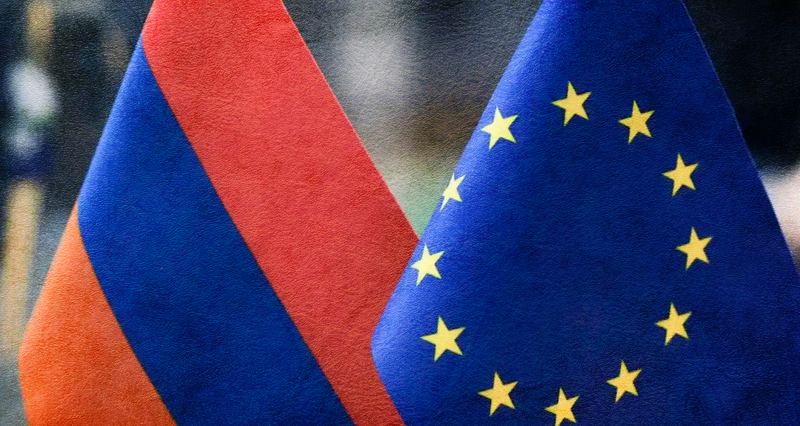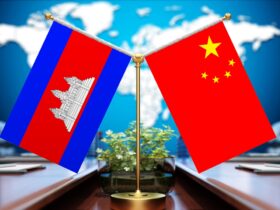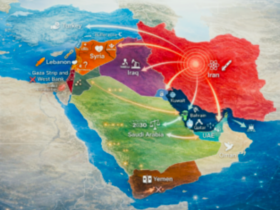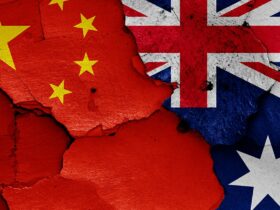Interview to Azerbaijani website Caliber.az
Interview to Azerbaijani website Caliber.az
The Armenian government has approved a draft law on starting the process of the country’s accession to the European Union. The decision was made at the Cabinet meeting on Thursday, 9 January, Armenia News reported. The document will now go to the country’s parliament for approval. According to the government’s justification, the approval of the initiative “will make the expectations of the citizens of the Republic of Armenia to become a full member of the European Union more realistic,” as well as create a working environment for discussing the issue.
Armenian Prime Minister Nikol Pashinyan noted that the decision on the country’s accession to the association can only be made through a popular referendum. “But we should also note that before the referendum we should take certain actions: discuss the roadmap with the European Union,” Pashinyan emphasised.
In September, Armenia and the EU began talks on visa-free travel. The condition for the cancellation of visas for Armenian citizens travelling to the EU for short-term trips was the implementation of “substantial reforms” by the country’s authorities, including in the areas of border control, migration and the fight against corruption.
Presenting the draft law, Armenian Foreign Minister Ararat Mirzoyan said that ‘in recent years, Armenia and the EU have developed quite intensive and dynamic relations’.
This is all very interesting, but one has to wonder: even if the popular referendum favours Armenia’s accession to the EU by a majority vote, will this in itself influence official Brussels? Does the EU leadership now seek to expand the borders of this union? What are Armenia’s prospects of joining the EU at all, given the political and economic state it is in?
Besides, let us not forget that Armenia is a member of the EAEU, and it is unlikely that this circumstance positively influences the prospects of its European integration.
Prominent analysts agreed to share their thoughts on this issue with Azerbaijani site Caliber.Az.
“We Turks know very well what the EU accession process is,” said United World International’s author, Doctor of Historical Sciences Mehmet Perinçek. “This is a big trap for Türkiye and, of course, for Armenia. Western countries with their endless promises make Türkiye not to move away from the doors of the Western world and co-operate with its real friends, partners in Eurasia, and on the other hand, they will never accept Türkiye into the EU. The same is the situation with Armenia. With its so weak economy. With its endless political crises. The EU will never accept Armenia as a member”.
Their goal is different, he believes.
“They want to tear Armenia away from regional countries and alliances. Because they see very well that there is a regional initiative developing in the South Caucasus now. There is a ‘3 + 3’ platform, and regional countries are solving regional problems with their efforts. After the Second Karabakh War a favourable ground for lasting peace in the South Caucasus was created. The possibility of signing peace between Armenia and Azerbaijan has appeared. But peace or stabilisation of the region hinders the plans of the West. Therefore, they want to create chaos or permanent conflicts in the region. For this, they need a bridgehead, and the most convenient country for the West as a bridgehead is Armenia.
After the complete restoration of Azerbaijan’s territorial integrity, the West has lost its instrument to interfere in regional affairs. Now, through the ‘EU accession process’ it wants to tear Armenia away from the region and use it as a springboard against all regional countries – against Türkiye, against Azerbaijan, against Russia and against Iran. During this process, they will put new and new conditions for EU accession, and in this way, they will destroy Armenia’s sovereignty. They will completely control the power of Armenia. This is a process of complete des-sovereignisation of Armenia. This is not only a trap for Yerevan. It is also a great trap for the Armenian people. This process, of course, perverts the mentality, thoughts of the Armenian people,” the historian believes.
This process, he believes, will also lead Armenia to isolation from its neighbours, because it will withdraw from other alliances – economic or military.
“And thus, Armenia will remain alone in the region. The Armenian people and the government in Yerevan will think that the West is behind them, but we know very well the tactics of the West – use it and throw it away. They will use Armenia for their own selfish purposes, and create enmity between Armenia and its neighbours again. They will use Armenia against regional countries. Then they will discard Armenia and the Armenian people.
Armenia’s future is not in the West’s plans. Armenia’s future is not in this chimera called ‘joining the EU’. Its future lies in signing a peace treaty with Azerbaijan, in co-operation with Türkiye and Russia,” Perinçek is convinced.
Stanislav Pritchin, Candidate of Historical Sciences, Senior Researcher at the Centre for Post-Soviet Studies of E.M. Primakov National Research Institute of World Economy and International Relations of the Russian Academy of Sciences (Moscow), believes that a rather serious crisis of the European Union is evident, in the sense that only now the Schengen zone has been extended to Bulgaria and Romania, which have been members of the European Union since 2007.
“And all this was accepted with scandals, with conflicts, with serious compromises, because Bulgaria and Romania do not reach the level of average European Union countries in terms of living standards and by very many standards.
In addition, we see the opposite stories, for example, in the case of Georgia, which in principle suspends its accession to the EU because of excessive requirements and dictate of the European Commission on a number of issues that should remain under the jurisdiction of the state itself. In all these conditions, of course, Armenia’s plans to join the EU look rather speculative, phantom,” the expert says.
Armenia has no chances to become a member of the EU from the word “absolutely” by any of the parameters, he emphasises.
“At least even if we proceed from geography, Armenia does not border with any of the EU states, and there is not even a border by water, as Georgia has. So that there would be direct communication with the EU countries at least by sea route. Armenia is remote, geographically isolated. If we start discussing all other issues – living standards, compliance with standards, long-term experience of the same Georgia in transition to preparation for even EU candidacy, we will see that this is a very expensive, very complicated, and in many ways unpredictable route, which is actually not very achievable in the case of Armenia.
So here it mostly looks like such a big political game. That is, an illusion is created for the Armenian population that there is a long-term goal, and it is achievable. The authorities in the person of Nikol Pashinyan and his team use it in every possible way. On the wave of this long-term aspiration it earns political points, i.e., in principle, it relies on human and rationality, i.e., on the hope to live better like in Europe. At the same time, critical thinking and a rational approach to assessing the feasibility of these plans are put aside. This is what politicians need,” the researcher says.
Speaking about the Eurasian Economic Union (EAEU), there are indeed serious contradictions, he continued.
“For example, the Ukrainian crisis, I remind you, began precisely because the European Union did not agree to create a common zone, which would include a free trade zone within the EU and which would be synchronised with the EurAsEC (now EAEU), which was already being created at that time. After Yanukovych’s refusal to sign such an agreement on free trade zone, in fact, the protests started, and the EU forced the overthrow of Yanukovych, i.e. supported politically this overthrow.
That is why we can say that these contradictions are very serious at the level of political contradictions. At the institutional level these contradictions are actually mutually exclusive, as Ukraine’s experience shows that it is impossible to synchronise the EU and the EAEU.
Although Armenia managed to sign a free trade area agreement with the EU while being a member of the EAEU (well, they found a compromise form), but in political terms, if Armenia moves towards the EU, fulfils more and more of Brussels‘ requirements, adopts EU standards, increases its transparency and opens its market for European goods, then, accordingly, difficulties may arise here, and sooner or later the issue of suspending its membership in the EAEU will arise,” Pritchin concluded.

















Leave a Reply